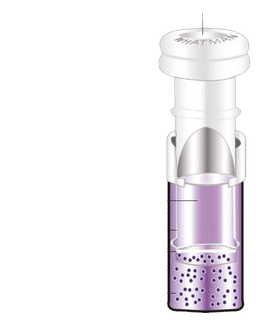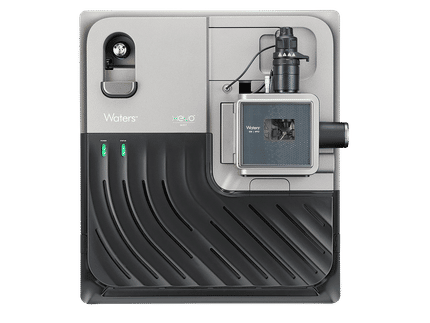|
|
This article needs additional citations for verification.
Please help improve this article by adding reliable references. Unsourced material may be challenged and removed. (January 2008) |
Sly syndrome
Classification & external resources
| ICD-10
| E76.2
|
| ICD-9
| 277.5
|
| OMIM
| 253220
|
| DiseasesDB
| 8389
|
| eMedicine
| ped/858
|
| MeSH
| D016538
|
Sly syndrome, also called Mucopolysaccharidosis Type VII or MPS, was named after its discoverer William Sly in 1969. [1][2]
Sly syndrome is an autosomal recessive lysosomal storage disease characterized by a deficiency of the enzyme β-glucuronidase, a lysosomal enzyme. Sly syndrome belongs to a group of disorders known as the mucopolysaccharidoses, which are lysosomal storage diseases. In Sly syndrome, the deficiency in β-glucuronidase leads to the accumulation of certain complex carbohydrates (mucopolysaccharides) in many tissues and organs of the body.
Genetics
The defective gene responsible for Sly syndrome is located on chromosome 7.
Symptoms
The symptoms of Sly syndrome are similar to those of Hurler syndrome (MPS I). The symptoms include:
- in the head, neck, and face: coarse (Hurler-like) facies and macrocephaly, frontal prominence, premature closure of sagittal lambdoid sutures, and J-shaped sella turcica
- in the eyes: corneal opacity and iris colobmata
- in the nose: anteverted nostrils and a depressed nostril bridge
- in the mouth and oral areas: prominent alveolar processes and cleft palate
- in the thorax: usually pectus carinatum or exacavatum and oar-shaped ribs; also a protruding abdomen and inguinal or umbilical hernia
- in the extremities: talipes, an underdeveloped ilium, aseptic necrosis of femoral head, and shortness of tubular bones occurs
- in the spine: kyphosis or scoliosis and hook-like deformities in thoracic and lumbar vertebrate
- in the bones: dysotosis multiplex
In addition recurrent pulmonary infections occur. Hepatomegaly occurs in the gastrointestinal system. Splenomegaly occurs in the hematopoietic system. Inborn mucopolysaccharide metabolic disorders due to β-glucuronidase deficiency with granular inclusions in granulocytes occurs in the biochemical and metabolic systems. Growth and motor skills are affected, and mental retardation also occurs.
Prevalence
MPS type VII occurs in only 1:250,000 people.
Other names
Mucopolysaccahridosis Type VII is also known as β-glucurondinase deficiency, β-glucurondinase deficiency mucopolysaccahridosis,
GUSB deficiency, mucopolysaccahride storage disease VII, MCA, and MR.
References
- ^ slu.edu. Retrieved on 2007-12-31.
- ^ Sly WS, Quinton BA, McAlister WH, Rimoin DL (1973). "Beta glucuronidase deficiency: report of clinical, radiologic, and biochemical features of a new mucopolysaccharidosis". J. Pediatr. 82 (2): 249–57. PMID 4265197.
| Metabolic pathology / Inborn error of metabolism (E70-90, 270-279) |
|---|
| Amino acid | Aromatic (Phenylketonuria, Alkaptonuria, Ochronosis, Tyrosinemia, Albinism, Histidinemia) - Organic acidemias (Maple syrup urine disease, Propionic acidemia, Methylmalonic acidemia, Isovaleric acidemia, 3-Methylcrotonyl-CoA carboxylase deficiency) - Transport (Cystinuria, Cystinosis, Hartnup disease, Fanconi syndrome, Oculocerebrorenal syndrome) - Sulfur (Homocystinuria, Cystathioninuria) - Urea cycle disorder (N-Acetylglutamate synthase deficiency, Carbamoyl phosphate synthetase I deficiency, Ornithine transcarbamylase deficiency, Citrullinemia, Argininosuccinic aciduria, Hyperammonemia) - Glutaric acidemia type 1 - Hyperprolinemia - Sarcosinemia |
|---|
| Carbohydrate | Lactose intolerance - Glycogen storage disease (type I, type II, type III, type IV, type V, type VI, type VII) - fructose metabolism (Fructose intolerance, Fructose bisphosphatase deficiency, Essential fructosuria) - galactose metabolism (Galactosemia, Galactose-1-phosphate uridylyltransferase galactosemia, Galactokinase deficiency) - other intestinal carbohydrate absorption (Glucose-galactose malabsorption, Sucrose intolerance) - pyruvate metabolism and gluconeogenesis (PCD, PDHA) -
Pentosuria - Renal glycosuria |
|---|
| Lipid storage | Sphingolipidoses/Gangliosidoses: GM2 gangliosidoses (Sandhoff disease, Tay-Sachs disease) - GM1 gangliosidoses - Mucolipidosis type IV - Gaucher's disease - Niemann-Pick disease - Farber disease - Fabry's disease - Metachromatic leukodystrophy - Krabbe disease
Neuronal ceroid lipofuscinosis (Batten disease) - Cerebrotendineous xanthomatosis - Cholesteryl ester storage disease (Wolman disease) |
|---|
| Fatty acid metabolism | Lipoprotein/lipidemias: Hyperlipidemia - Hypercholesterolemia - Familial hypercholesterolemia - Xanthoma - Combined hyperlipidemia - Lecithin cholesterol acyltransferase deficiency - Tangier disease - Abetalipoproteinemia
Fatty acid: Adrenoleukodystrophy - Acyl-coA dehydrogenase (Short-chain, Medium-chain, Long-chain 3-hydroxy, Very long-chain) - Carnitine (Primary, I, II) |
|---|
| Mineral | Cu Wilson's disease/Menkes disease - Fe Haemochromatosis - Zn Acrodermatitis enteropathica - PO43− Hypophosphatemia/Hypophosphatasia - Mg2+ Hypermagnesemia/Hypomagnesemia - Ca2+ Hypercalcaemia/Hypocalcaemia/Disorders of calcium metabolism |
|---|
Fluid, electrolyte
and acid-base balance | Electrolyte disturbance - Na+ Hypernatremia/Hyponatremia - Acidosis (Metabolic, Respiratory, Lactic) - Alkalosis (Metabolic, Respiratory) - Mixed disorder of acid-base balance - H2O Dehydration/Hypervolemia - K+ Hypokalemia/Hyperkalemia - Cl− Hyperchloremia/Hypochloremia |
|---|
| Purine and pyrimidine | Hyperuricemia - Lesch-Nyhan syndrome - Xanthinuria |
|---|
| Porphyrin | Acute intermittent, Gunther's, Cutanea tarda, Erythropoietic, Hepatoerythropoietic, Hereditary copro-, Variegate |
|---|
| Bilirubin | Unconjugated (Lucey-Driscoll syndrome, Gilbert's syndrome, Crigler-Najjar syndrome) - Conjugated (Dubin-Johnson syndrome, Rotor syndrome) |
|---|
| Glycosaminoglycan | Mucopolysaccharidosis - 1:Hurler/Hunter - 3:Sanfilippo - 4:Morquio - 6:Maroteaux-Lamy - 7:Sly |
|---|
| Glycoprotein | Mucolipidosis - I-cell disease - Pseudo-Hurler polydystrophy - Aspartylglucosaminuria - Fucosidosis - Alpha-mannosidosis - Sialidosis |
|---|
| Other | Alpha 1-antitrypsin deficiency - Cystic fibrosis - Amyloidosis (Familial Mediterranean fever) - Acatalasia |
|---|
|







